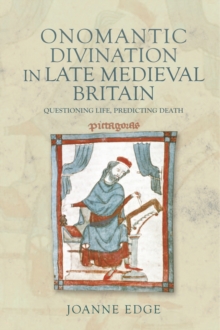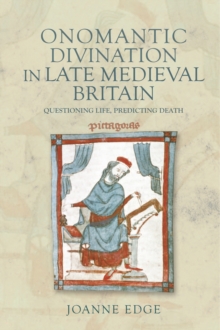
Onomantic Divination in Late Medieval Britain : Questioning Life, Predicting Death Hardback
by Joanne (Person) Edge
Part of the Health and Healing in the Middle Ages series
Hardback
Description
Demonstrates the wide prevalence of supposedly impermissible divination techniques found in a wide range of manuscripts from medieval Britain. When will I die? What is the sex of my unborn child? Which of two rivals will win a duel?As today, people in the later Middle Ages approached their uncertainties about the future, from the serious to the mundane, in a variety of ways.
One of the most commonly surviving prognostic methods in medieval manuscripts is onomancy: the branch of divination that predicts the future from calculations based on the numbers that correlate to the letters of personal names.
However, despite its ubiquity, it has been relatively little studied. This book analyses the intellectual and physical contexts of onomantic texts in some 65 manuscripts of British provenance between around 1150 and 1500, focusing on its two main varieties It demonstrates that onomancies were copied, owned and used by a people from a wide range of literate society in late medieval England: medical practitioners; the gentry and aristocracy; university scholars; and monks. And it seeks to answer the question of why a divinatory device, condemned in canon law as "Pythagorean necromancy", enjoyed such popularity in mainstream books of religion, medicine, and scholasticism.
Information
-
Out of stock
- Format:Hardback
- Pages:282 pages, 17 b/w illus.
- Publisher:York Medieval Press
- Publication Date:05/03/2024
- Category:
- ISBN:9781914049248
Information
-
Out of stock
- Format:Hardback
- Pages:282 pages, 17 b/w illus.
- Publisher:York Medieval Press
- Publication Date:05/03/2024
- Category:
- ISBN:9781914049248










